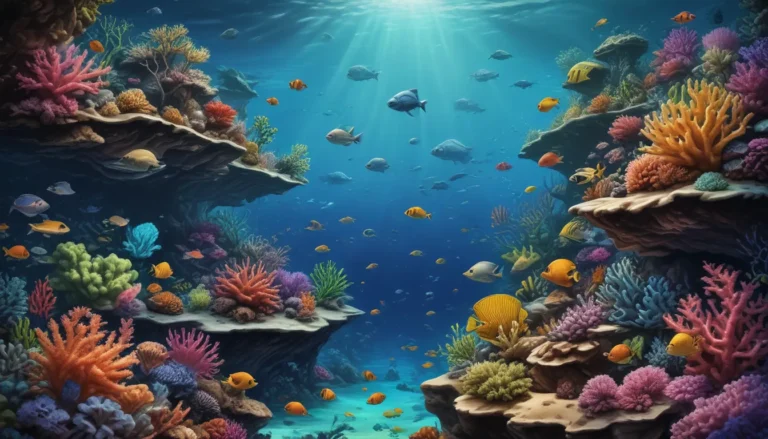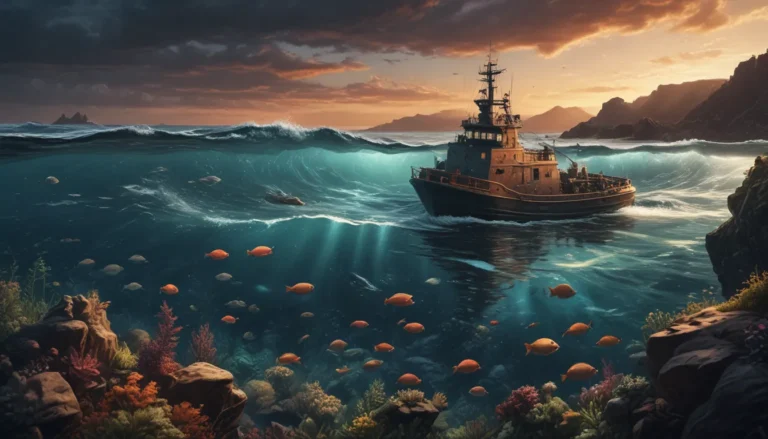A Note About Images: The images used in our articles are for illustration purposes only and may not exactly match the content. They are meant to engage readers, but the text should be relied upon for accurate information.
Welcome to the captivating world of oceanography, where the mysteries of the deep blue seas unfold before our eyes. Oceanography, the scientific study of the ocean and its inhabitants, offers a vast realm of discovery and understanding. With its significant role in our planet’s ecosystem, the ocean has plenty of secrets waiting to be unveiled. Let’s embark on a journey to explore nine intriguing facts about oceanography that will leave you in awe of the wonders that lie beneath the surface of the world’s oceans.
Unveiling the Mysteries of the Ocean
- The ocean encompasses over 70% of the Earth’s surface, making it the largest habitat on our planet.
- The Mariana Trench, located in the western Pacific Ocean, is the deepest part of the world’s oceans, reaching a depth of about 36,070 feet (10,972 meters) at the Challenger Deep.
- Oceanographers study marine life and ecosystems to unravel the complexity and interconnectedness of the ocean’s biodiversity.
- Oceanography helps predict and monitor climate change by gathering data on ocean currents, temperature, and salinity to understand climate patterns and predict future changes.
- Exploration of underwater volcanoes and vents provides insights into Earth’s tectonic activity and the formation of new landmasses.
- Oceanographers utilize advanced technologies like remotely operated vehicles (ROVs) and autonomous underwater vehicles (AUVs) to explore the depths of the ocean.
- The ocean holds valuable resources such as oil, gas, minerals, and renewable energy sources, and oceanographers play a crucial role in identifying and managing these resources sustainably.
- By understanding the mechanisms behind natural disasters like tsunamis, hurricanes, and storm surges, oceanography enables the development of early warning systems to mitigate their impact.
- Oceanographers explore the role of oceans in the origins of life by studying hydrothermal vents and deep-sea environments to understand early life forms and the potential for extraterrestrial life.
Delving Deeper into Oceanography
Oceanography is a captivating and multifaceted field that explores the wonders and complexities of our oceans. From studying marine organisms to understanding the ocean’s impact on climate patterns, oceanographers play a crucial role in advancing our knowledge of the world’s oceans. Through the use of advanced technologies, interdisciplinary research, and exploration of the ocean’s depths, scientists continue to make significant advancements in fields like climate science, marine conservation, and resource management.
Embracing the Ocean’s Vital Importance
The study of oceanography provides us with valuable insights into the interconnectedness of our planet’s ecosystems. By expanding our knowledge of the ocean’s role in climate regulation, marine conservation, and resource management, we can make informed decisions to protect and preserve these vital ecosystems. As we continue to explore and research our oceans, it is essential to recognize the significance of oceanography in understanding and safeguarding our vast blue planet.
Discovering the World of Oceanography
-
What is oceanography?
Oceanography is the scientific study of the oceans, including their physical and chemical properties, marine life, and the interactions between the ocean and the atmosphere. -
What are some career opportunities in oceanography?
Career opportunities in oceanography include marine biologist, oceanographer, coastal engineer, environmental consultant, and oceanographic technician, among others. -
How does oceanography contribute to understanding climate change?
Oceanography plays a crucial role in understanding climate change by studying ocean currents, temperature patterns, and the absorption and release of carbon dioxide by the oceans, which impact global climate systems. -
How deep is the ocean?
The average depth of the ocean is around 12,080 feet (3,682 meters), with the Mariana Trench in the western Pacific Ocean being the deepest part, reaching a depth of approximately 36,070 feet (10,972 meters). -
How does oceanography help in marine conservation?
Oceanography provides critical information about the health and biodiversity of marine ecosystems, assisting scientists and conservationists in making informed decisions regarding the protection and management of these valuable resources.
Conclusion: Embracing the Wonders of Oceanography
Oceanography offers a fascinating journey into the mysteries of the world’s oceans, unraveling the interconnectedness of marine life, climate patterns, and natural phenomena. By delving into the depths of the ocean, researchers continue to make groundbreaking discoveries that shape our understanding of the planet and its ecosystems. As we navigate the challenges and opportunities presented by our vast blue planet, oceanography remains a beacon of knowledge and exploration, guiding us towards a deeper appreciation of the vital role oceans play in sustaining life on Earth.






